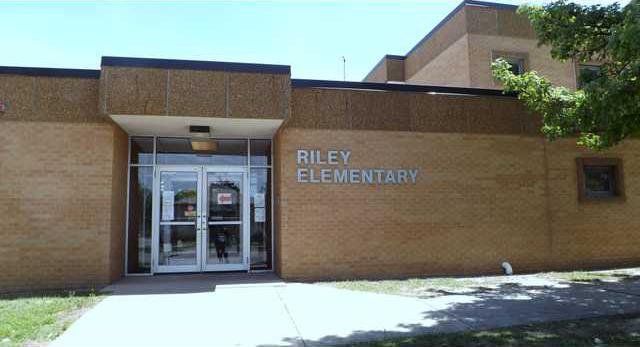Editor’s note: This is the first of two stories about ideas discussed Monday at a Great Bend USD 428 Board of Education work session on long-range planning. Part two will look at more ideas, including some that are already in the works.
Great Bend USD 428 is ready to accept more 3- and 4-year-olds this fall at Riley Elementary School, interim superintendent Khris Thexton told the school board when it met Monday for a study session.
Long-range planning at USD 428 could lead to some sweeping changes, such as moving sixth graders to the middle school and razing the oldest part of the Washington Early Childhood Learning Center to make room for a new addition. All of the ideas discussed Monday are only possibilities that would require more study, administrators and board members said.
“Some of these (ideas) would be a significant amount of money that we don’t have on hand,” Thexton said.
Riley pre-school
The district has one section of at-risk 4-year-olds at Riley and that could be expanded to two sections at no additional cost to the district, Thexton said. The reason: Enrollment at Riley has fallen, so there will be fewer sections of older students this fall.
“It wouldn’t take much; it’s just moving people into other positions,” he said. “I’d like to pursue that and see how it works.”
Preschoolers would attend for half a day and could eat breakfast or lunch at school, Thexton suggested.
Board member Susan Young, who also serves on the board for Noah’s Ark Preschool, said officials at private preschools are concerned about efforts to expand public preschools. They want to know what to expect and when it will happen.
“This is a long process,” Thexton said. At this time, Great Bend doesn’t have the space or the money to add preschools at all elementary centers.
But Riley seems to present an opportunity, board member Cheryl Rugan commented. “If we’re looking in that direction, it’s the perfect pilot.”
Tricia Reiser, who administers state and federal programs for the school district, said public preschools wouldn’t necessarily hurt private centers. “A lot of kids aren’t being served,” she said. “I think there’s room for everybody.”
Thexton said parents might have to pay to send preschoolers to public schools in the future. In some scenarios, the state will only pay half of the cost.
Moving sixth graders
Board members also discussed moving sixth graders out of elementary schools and into Great Bend Middle School, which now has about 450 seventh and eighth graders. Thexton said the middle school could accommodate the additional students, and most elementary curricula are geared to grades K-5.
“I like the idea,” said board member Dr. Larry Kutina, noting such a move might be good for students and open space at the elementary schools.
“People think putting sixth grade in Great Bend Middle School is a good idea,” board president Joyce Carter said.
“You could make it so the sixth graders never see seventh and eighth graders,” Assistant Superintendent John Popp said.
Thexton said GBMS only has one counselor, and adding a family support worker could be beneficial, even without the additional students.
“The drama factor’s pretty high at the middle school level, and a counselor can really help you out,” Thexton said.
Rugan agreed that middle school can be a difficult transition time. “Those kids are reachable,” she said. “That is a time they could use a little support and maybe change the whole trajectory of their life.”
Washington
Another way to create more space would be to tear down the west side of the Washington Early Childhood Center and rebuild a larger, modern wing. That side of the former Washington School is the oldest learning center in the district, Thexton said.
Thexton said the district could have architectural firms look at some of the things being considered. “It would be nice for someone to come in – experts in the field.”
Kutina noted that in two years the district will be debt-free when it pays off its bonds.
“I’m not saying I want another bond,” Kutina added.
Thexton said a bond issue might not be needed; the board could commit part of its mill levy for capital outlay projects.





